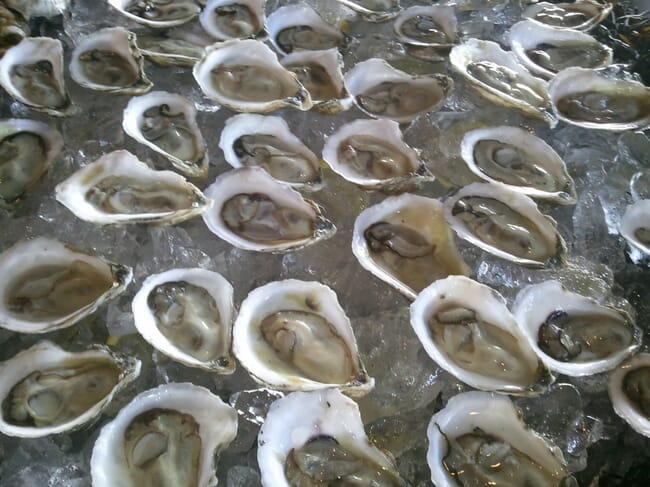Oyster-related illnesses pose risks both to human health and to the $62 million BC shellfish industry. Several outbreaks from 2015 to 2018 resulted in severe cases of gastroenteritis, and serious viral or bacterial infections including noroviruses and Vibrio parahaemolyticus (VP). Currently, the only outbreak control measure is shutting down oyster farms, resulting in millions of lost dollars and employment for hundreds

Noroviruses are highly contagious and are the leading cause of non-bacterial, acute gastroenteritis in humans, an illness that usually includes diarrhoea and/or vomiting. VP is a naturally occurring marine bacteria also known to cause gastroenteritis. Both pathogens can be transmitted to humans through the consumption of raw or undercooked oysters.
The first two projects will help to:
- Reduce the number of oyster-related illnesses through improved detection of norovirus and VP, leading to improved outbreak response;
- Support timely identification of contaminated products for food safety investigations, limiting the scope of recalls, and broad harvest area closures;
- Evaluate if post-harvest handling procedures are impacting the levels of VP bacteria in oysters. This will help to determine the most effective preventive measures for the oyster industry;
- Improve laboratory methods to generate and share high-quality data among involved partners.
The third project, New tools to forecast and prevent norovirus contamination of farmed oysters, is being led by Vancouver Island University’s Dr Tim Green and the BC Shellfish Growers Association. With a focus on norovirus in the environment, the project has the following research objectives:
- Demonstrating new tools for the detection of human sewage pollution as farm-based, real-time monitoring system for norovirus;
- Identifying the source, dispersal mechanisms and persistence of norovirus in Baynes Sound, the leading oyster producing region in BC.
“BC oyster farmers work hard so people can enjoy our seafood locally and around the world, and multi-agency partnerships and research will help that continue,” said BC agriculture minister, Lana Popham. “Provincial investments in re-seeding efforts, and research to ensure harvested seafood can be enjoyed safely are key elements to supporting stability in the province’s oyster aquaculture sector.”
“This investment is an important step forward in ensuring that BC oysters are safe for human consumption and that oyster farming in BC is better protected,” said Dr Pascal Spothelfer, president and CEO of Genome BC. “BC’s seafood industry and government agencies are direct partners on this project so implementation will be swift and significant.”

